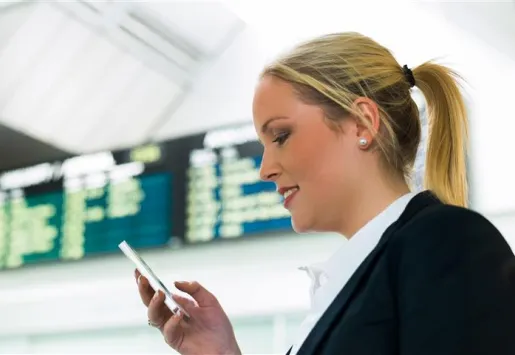
The business trip of the future will be set up by a consulting travel agency. It will be planned, accompanied and evaluated by a single tool. The entire trip will be green, respect the travelers’ ages and families; use alternative transportation and conveniently get the traveler from point A to point B on time.
The think tank of the German Business Travel Association VDR, called “VDR-TrendsPort”, used this future scenario of business mobility in the year 2030 to derive individual trends and challenges.
Coaches Nicole Habich (Service Partner for strategy forums) and Ludger Bals (Innovative Business Concepts) accompanied the participants of this year‘s TrendsPort on their time travelling endeavors: „Our goal here at TrendsPorts isn’t to predict new Megatrends. Instead, we opt to use the knowhow of business travelling experts and stimulate their creativity, so we can name future trends by looking ahead,” commented Bals.
One of the most significant features of future business travels is a unique “Door-to-Door” approach, which allows for intermodal, smooth travelling experiences while also incorporating ecological alternatives. Travelers can choose from a flexible range of transportation methods. If they choose to shape their trip in a sustainable way, they can collect bonus points on their companies’ mobility budget as an incentive. The entire trip is set up as an End-to-End process: From the organization to the approval, booking, implementation and billing, everything will be carried out by a single tool.
Their optimized “green” packages support the creation of new integrated mobility concepts with a focus on sustainability - provided the customer is willing to pay a little more than usual. They also keep in mind that each client is an investment for success, which is why each trip is handled as highly valuable time and keeps the private and health-related circumstances of each traveler in mind.
The role of the business travel agency will be reinvented and act as an interface manager. On top of its traditional tasks, it will also handle purchases, auditing, risk management, ecological alternative, data protection and other basic conditions related to business mobility.
„We still have to do a lot of work for the business trip of tomorrow,” concludes VDR President Dirk Gerdom at TrendsPorts 2014. „All participants have to work as close together as possible in order to facilitate a smooth execution of business mobility the way we predict it. The VDR is going to act as a platform for all participants in the market. It’s going to bring technology companies and users together to create applicable standards. It’s also going to bring all mobility providers together, so we can all work on joining the loose ends of the carpet that is public transportation. The VDR provides transparency, removes political barriers and creates applicable standards. “
















